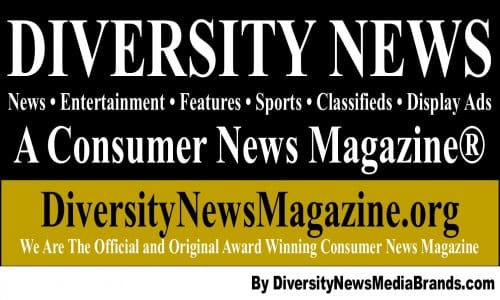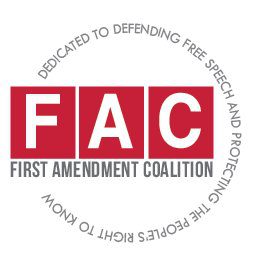We may earn money or products from the companies mentioned in this post.

Editorial and Opinions Education: State and National Shield Laws in the USA
First, we want to define for you what an Editorial piece means:
An editorial, leading article (UK) or leader (UK), is an opinion piece written by the senior editorial staff or publisher of a newspaper, magazine, or any other written document. Editorials may be supposed to reflect the opinion of the periodical.[citation needed] In Australian and major United States newspapers, such as The New York Times[1] and The Boston Globe,[2] editorials are often classified under the heading “opinion”.
Illustrated editorials may appear in the form of editorial cartoons.[3]
Typically, a newspaper’s editorial board evaluates which issues are important for their readership to know the newspaper’s opinion.[4]
Editorials are typically published on a dedicated page, called the editorial page, which often features letters to the editor from members of the public; the page opposite this page is called the op-ed page and frequently contains opinion pieces by writers not directly affiliated with the publication. However, a newspaper may choose to publish an editorial on the front page. In the English language press, this is done rarely and only on topics considered especially important; however, it is more common in some European countries such as Spain, Italy, and France.[5]
In the field of fashion publishing, the term has been adapted to refer to photo-editorials – features with often full-page photographs on a particular theme, designer, model or other single topic, with or (as a photo-essay) without accompanying text.[6]
Second, we want to define for you what an Opinion piece means:
In general, an opinion is a judgment, viewpoint, or statement about matters commonly considered to be subjective.
What distinguishes fact from opinion is that facts are verifiable, i.e. can be objectively proven to have occurred. An example is: “United States of America was involved in the Vietnam War” versus “United States of America was right to get involved in the Vietnam War”. An opinion may be supported by facts, in which case it becomes an argument, although people may draw opposing opinions from the same set of facts. Opinions rarely change without new arguments being presented. It can be reasoned that one opinion is better supported by the facts than another by analyzing the supporting arguments.[1] In casual use, the term opinion may be the result of a person’s perspective, understanding, particular feelings, beliefs, and desires. It may refer to unsubstantiated information, in contrast to knowledge and fact.
Collective or professional opinions are defined as meeting a higher standard to substantiate the opinion.
Editorial opinion[edit]
An “editorial opinion” is the stated opinion of a newspaper or of its publisher, as conveyed on the editorial page.
And Fourth California Shield Law:
In California, article I, section 2(b) of the California Constitution and Evidence Code section 1070 provide an immunity from being held in contempt to reporters, editors, publishers, and other people connected with or employed by newspapers, magazines, press associations and wire services, as well as radio or TV news reporters.
The California shield law applies to both the source of information (“confidential sources”) and to “unpublished information” such as notes, out-takes, unpublished photographs and tapes.
When a criminal defendant seeks information protected by the shield law, the courts have set up a “balancing test” which weighs how important the information is to the criminal defendant, whether the defendant can get the information elsewhere, and other factors. See Delaney v. Superior Court (1990) 50 Cal. 3d 785.
On the other hand, when the prosecution seeks information in a criminal law, the shield law is absolute. Miller v. Superior Court (1999) 21 Cal. 4th 883. And in a civil case where the press is not a party, the immunity from contempt is also absolute – there’s no balancing test. New York Times v. Superior Court (1990) 51 Cal. 3d 453. This case helps journalists avoid being forced to be professional witnesses instead of professional journalists.
Does the shield law cover bloggers? Good question. The California shield law covers people “connected with or employed upon” a “newspaper, magazine, or other periodical publication, or by a press association or wire service.” That question is likely to be litigated in the near future.
Additional information on the California Shield Law, Evidence Code Section 1070
1070. (a) A publisher, editor, reporter, or other person connected with or employed upon a newspaper, magazine, or other periodical publication, or by a press association or wire service, or any person who has been so connected or employed, cannot be adjudged in contempt by a judicial, legislative, administrative body, or any other body having the power to issue subpoenas, for refusing to disclose, in any proceeding as defined in Section 901, the source of any information procured while so connected or employed for publication in a newspaper, magazine or other periodical publication, or for refusing to disclose any unpublished information obtained or prepared in gathering, receiving or processing of information for communication to the public.
(b) Nor can a radio or television news reporter or other person connected with or employed by a radio or television station, or any person who has been so connected or employed, be so adjudged in contempt for refusing to disclose the source of any information procured while so connected or employed for news or news commentary purposes on radio or television, or for refusing to disclose any unpublished information obtained or prepared in gathering, receiving or processing of information for communication to the public.
(c) As used in this section, “unpublished information” includes information not disseminated to the public by the person from whom disclosure is sought, whether or not related information has been disseminated and includes, but is not limited to, all notes, outtakes, photographs, tapes or other data of whatever sort not itself disseminated to the public through a medium of communication, whether or not published information based upon or related to such material has been disseminated.
To read more on National and US Legal Shield Laws click on: Briefing Paper on Protection of Journalists’ Sources
Editor’s Note: Now you have it. Educate yourself if you do not want the “Real Press or Media” teams to report of what they saw then make your event private and remember press or media representatives are not your publicist and is against journalism code of ethics to accept payment for exchange on an exemplary article. Those are not real journalists and they out of the blue bought a video camera or photo camera and became media or press but has no direction or guidelines of the rules set by professional organizations for Journalists and Media or Press Associations such as: http://www.naa.org, http://newamericamedia.org/network/association, SPJ, Los Angeles Press Club and many more. They have no idea the formats how to write. They have no education on the field. So sad those desperate publicists accepts anyone that claims to be media or press!


